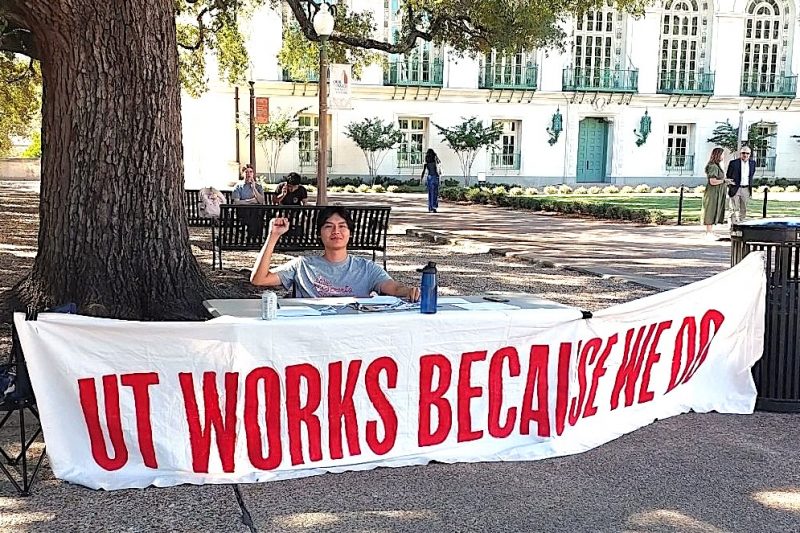


byRachel N. Madison
or the past two months, the University of Texas’ newly formed Graduate Workers Union has been advocating for better treatment, pay and rights of graduate student employees. And now it is joining other student groups in opposing a deal with the Trump administration that would transform the university’s governance structure.
“A union is a commitment by workers at a workplace to stand together with each other to be treated the way they deserve to be treated in terms of compensation and working conditions,” said Sociology Ph.D. student and union member Noah DiAntonio.

bySamantha Rubin
University of Texas students Monday urged administrators to reject the Trump compact on higher education and to stop a possible consolidation plan of the College of Liberal Arts they say could erase ethnic studies, women’s and gender studies and several language departments. “When I arrived at UT as a freshman, our campus looked completely different,” […]

byErika González
At 4 a.m., Yeni Renderos’ alarm went off, just like every other day. Half-asleep, she made coffee, woke her 16-year-old daughter and drove her to school before climbing into her truck, “Rosendo,” as she affectionately called it. For 10 years, that routine had defined her life in Houston, driving to construction sites, convinced her life was finally moving forward.
But that Monday was different. Renderos’ boss called to confirm what she feared most: “You can’t keep working, Yeni, she recalled him saying. “The rules for commercial licenses have changed.”

byIsabel Neumann
Just two months after a new Texas law expanded parents’ power to challenge school library books, authors gathered at the Texas Book Festival’s Banned Book Bash to read from titles that have been banned or challenged, or which might face future restrictions. The festival’s Librotraficantes: Banned Book Bash, held Saturday at Cheer Up Charlies, brought […]